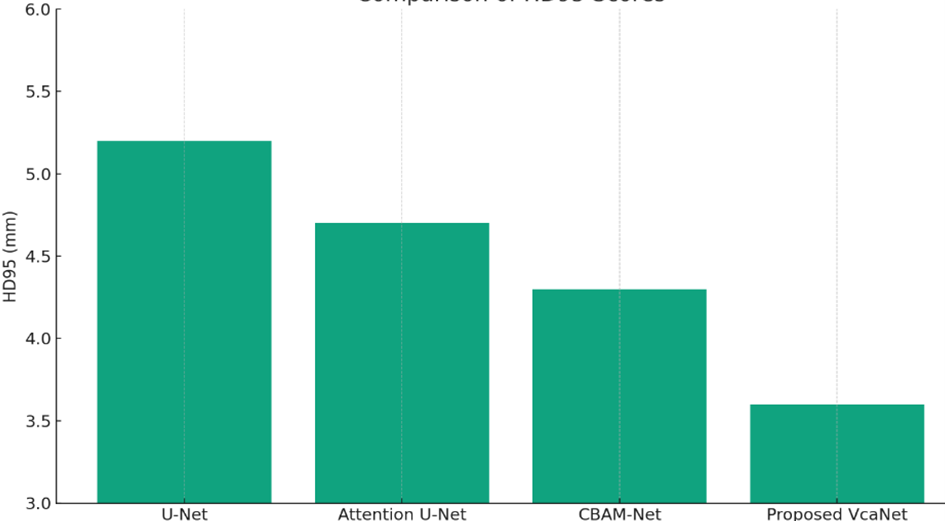VcaNet: A Spatial Encoding-Aware Lightweight Network for Efficient Brain Tumor Segmentation on Mobile Devices
Keywords:
Brain Tumor Segmentation, Mri, Vcanet, Coordinate Attention (CA), Cbam, Multi-Scale Contextual Transformer (MSCTRANS), Lightweight ModelAbstract
Accurate and real-time brain tumor segmentation in magnetic resonance imaging (MRI) is critical for early diagnosis and treatment planning, especially in resource-constrained settings. While deep learning models have achieved promising results, their high computational requirements limit deployment on edge or mobile devices. This study presents VcaNet, a novel spatial encoding-aware convolutional neural network that integrates Coordinate Attention (CA) with CBAM and Multi-Scale Contextual Transformer (MSCTrans) modules to enhance segmentation performance while maintaining computational efficiency. The model was evaluated on the BraTS2021 dataset and compared against several state-of-the-art lightweight and transformer-based baselines. VcaNet achieved a Dice Similarity Coefficient of 0.92, sensitivity of 0.91, and Hausdorff Distance (HD95) of 3.6 mm, outperforming both CBAM-only and CA-only architectures. It maintained a lightweight profile with only 6.2M parameters and 9.8 GFLOPs, making it ideal for mobile deployment. Ablation studies confirmed the additive benefits of each attention mechanism and transformer layer. The results validate that spatially aware attention mechanisms significantly improve boundary delineation and segmentation accuracy while enabling real-time performance in edge environments. VcaNet represents a promising step toward efficient and deployable AI solutions for medical imaging.


